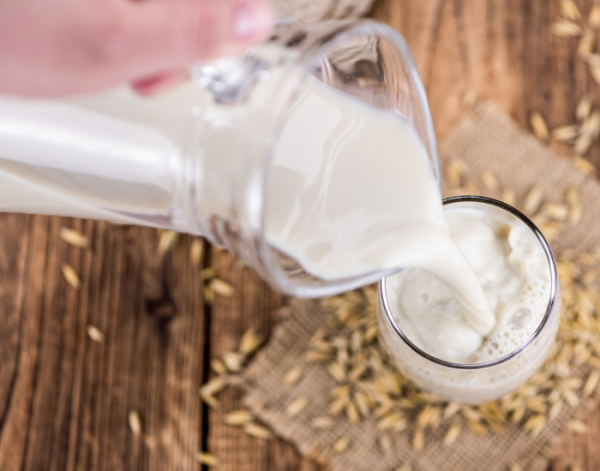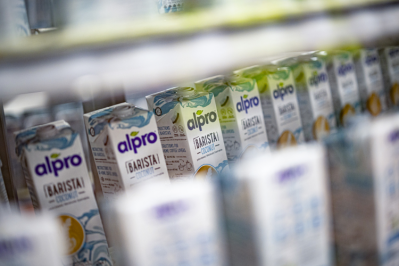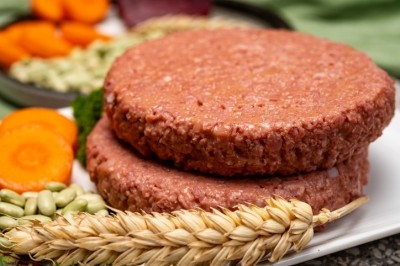‘We will launch… new dairy-like technology’: Danone eyes ‘plant-based 2.0’
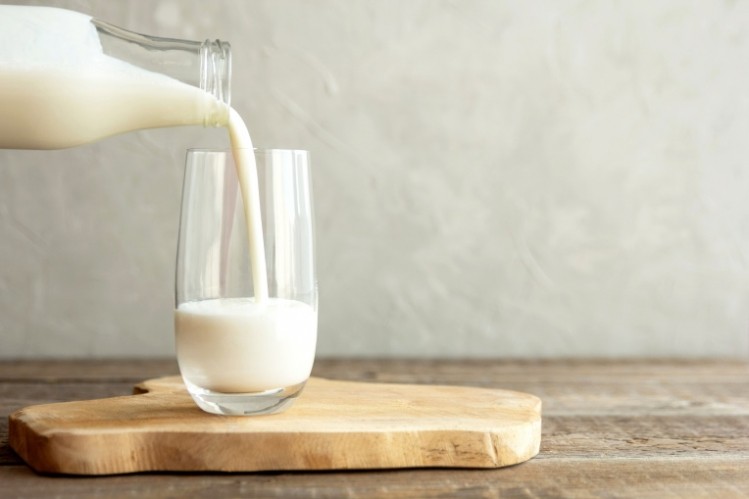
Danone returned to growth in the second quarter of this year, booking an increase in like-for-like sales of 6.6%. Much of the rebound can be attributed to the lapping of soft comparisons for the group's waters business, which was battered by COVID lockdowns last year but has been lifted by the slow easing of restrictions.
Alongside an improved water performance, Danone’s Essential Dairy and Plant-based (EDP) unit saw LFL sales increase 4.8%, led by the company’s priority areas of probiotics, protein and plant-based. Indeed, Danone’s plant-based brands continued to prove a stand-out performer for the company.
“Plant-based continued to be a bright spot, delivering its sixth consecutive quarter of double-digit growth, growing plus 12% in the quarter,” Interim Co-CEO Véronique Penchienati-Bosetta revealed.
Danone’s growth strategy in plant-based focuses on three key pillars: strengthening its core business, expanding in adjacencies and developing the next generation of ‘milk-like’ plant based products – or as fellow Interim Co-CEO Shane Grant termed it ‘plant-based 2.0’.
Strengthening the core: Alpro and Silk
In order to support the development of its core plant-based brands, Alpro in Europe and Silk in the US, Danone is investing in ‘product differentiation, communication, innovation’, Grant explained during a conference call.
In the US, for instance, the company launched a new Silk Almond ‘Milk of the Land’ campaign, with innovation Grant said ‘blurs the taste and texture experience of almond versus oats with extra creamyalmond’.
The ‘Milk of the Land’ campaign is an example of how Danone is working to ‘modernise’ its ‘master brands’ like Silk. Grant revealed we can expect more of this type of activity around the group’s big-hitting plant-based brands in the second half of the year.
“We will grow the core with sustained focus on key occasions. For example, Alpro will continue to target the coffee occasion with the refreshed Barista range,” the Danone executive revealed.
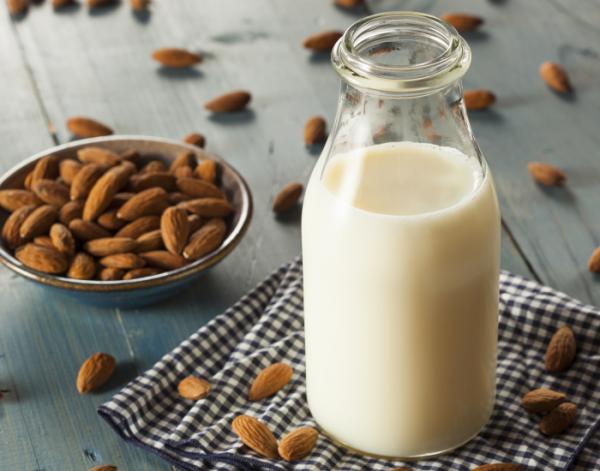
Grant said the plant-based dairy sector is dominated by three protein sources: almond, soy and oat.
On almond, Grant said this is the ‘biggest segment’ of plant-based beverages and one that acts as an ‘entry point for consumers’ into the category. The driver here, he reiterated, is making products stand out on shelf. “We continue to stay very assertive on providing points of differentiation in that segment. And you should expect more on that to come,” he told analysts.
In order to boost the consumer appeal of its soy-based beverages, Danone has repositioned its drinks to focus on nutrition. “We've had, I think, very successful repositioning of that segment into very much a nutrition space, both from the messaging and an innovation perspective,” Grant observed.
But with Barclays analyst Warren Ackerman describing Danone as occupying an ‘underweight position in oats’, Grant suggested that - as well as eating into the share of oat alternatives through taste-first innovation - the company is preparing to expand its proposition in oat milk alternatives.
“We have just commenced the full restage of that business with really a few components. One, the conversion of the business from Oat Yeah to Silk. Second, a full product reformulation with what we know from consumers as the best-tasting performing product in the market, some range architecture adjustment and then dedicated marketing and communications plus customer plans. We feel very confident in the oat plans going forward. It's certainly a key segment for us.”
Innovating in adjacencies
The largest segment in the dairy-free market is milk alternatives. According to data from Fortune Business Insights, this sub-category accounted for around 73% of global sales in 2020.
However, the analysis points to higher growth rates in non-dairy ice cream, yoghurts, cheeses and butters.
“The non-dairy revolution began with the development of milk alternatives. The segment is still dominating the global marketplace owing to favourable demand dynamics, increased interest among the key giants and private label players to develop milk from plant-based sources, and strong growth potential for vegan beverages.
“However, segments such as vegan ice cream, cheese and yoghurt would showcase faster growth rates than the non-dairy milk segment due to their popularity among consumers of all age groups.”
Danone agrees that there is significant opportunity to extend its plant-based beverage brands in these adjacent product segments. Products like plant-based yoghurts, ice creams, cheeses and creamers already represent around one-third of the company’s plant-based sales today, with potential to accelerate.
“These segments are some of the fastest-growing. They have emerging scale and, in some segments, similar or larger addressable markets versus milk. With Silk, Alpro, So Delicious and now Follow Your Heart, we have the leadership positions for continued scale and acceleration here,” Grant said.
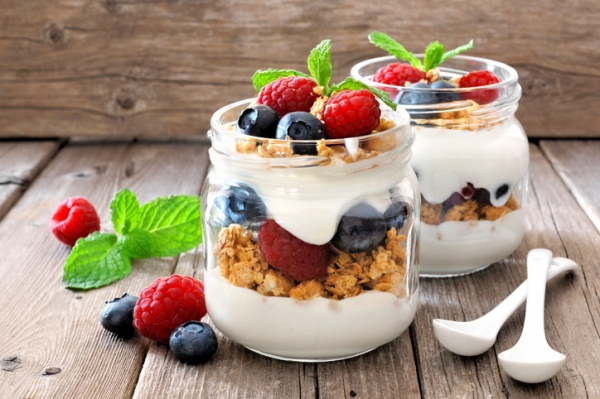
Plant-based 2.0: ‘Dairy-like technology’
Within the plant-based opportunity, Danone’s third area of focus is the development of products that Grant described as ‘plant-based 2.0’. “The current landscape in beverage is based on an ingredient analogue: almond, oat, soy. The opportunity we see is really the challenge of that convention.”
In the US, plant-based drink's household penetration stands at around 40% - meaning 60% of consumers do not buy into the category. In Europe, the penetration rate ranges from 30-50%. In comparison, milk’s household penetration rate in the region is 90%.
According to Danone, appealing to that majority of consumers who don’t currently purchase plant-based beverages represents a large opportunity for incremental growth. “As the leader of the category, that's an opportunity we see to really step up the growth of the segment overall and then our opportunity to lead it,” the Interim CEO noted.
But how can these consumers be brought into the fold?
“We know the barrier is primarily product taste and product texture. We will launch against this opportunity new dairy-like technology under Silk NextMilk, under So Delicious Wondermilk and under Alpro Not Milk,” Grant revealed.
“The underlying product technology is really a plant-based entry point versus just an ingredient-specific entry point… We know from consumer testing, we can match or better traditional dairy milk preference, recruiting new plant-based users, and we intend to launch these platforms with scale later in H2.”
As well as appealing to the circa 60% of consumers who aren’t engaging in plant-based beverages, Grant believes this innovative approach will also allow Danone to make further gains, taking share from brands who focus on oat milks.
“Because it is taste-first it allows us, we think, to make inroads in segments like oat, which we know is the underlying consumer motivation for the consumption of that segment.”
